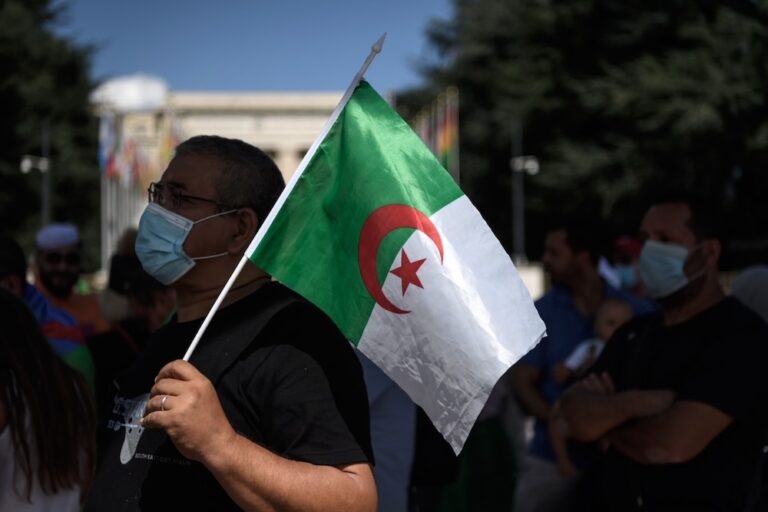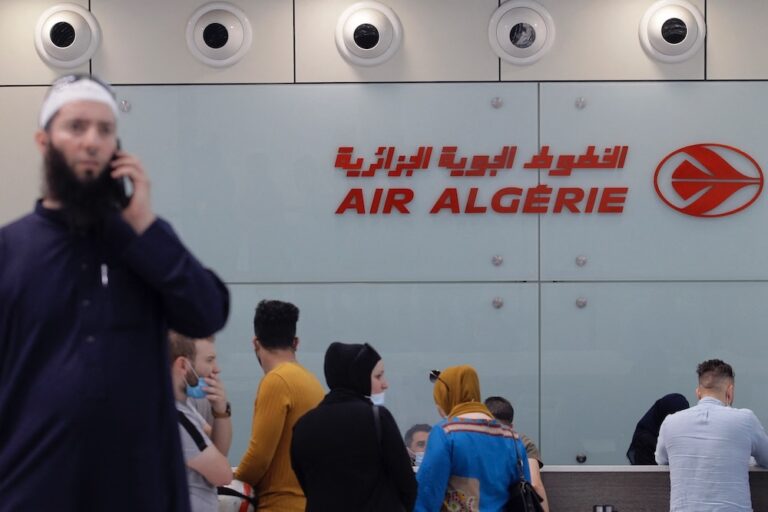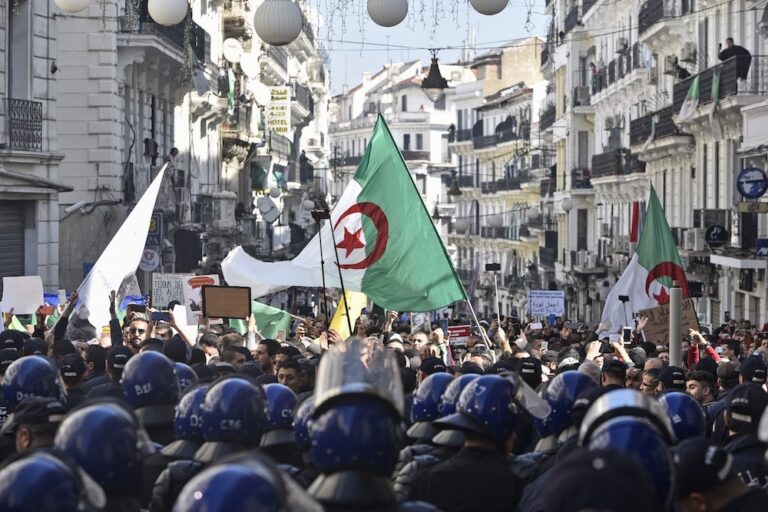(RSF/IFEX) – On the occasion of the “Day without newspapers” (Journée sans journaux), 28 May 2001 in Algiers and many provincial cities, RSF reaffirms its solidarity with the Algerian press’s protest movement. “Algerian journalists have had the chance to enjoy a freedom unlike that of their Moroccan or Tunisian colleagues,” declared RSF Secretary-General Robert Ménard. […]
(RSF/IFEX) – On the occasion of the “Day without newspapers” (Journée sans journaux), 28 May 2001 in Algiers and many provincial cities, RSF reaffirms its solidarity with the Algerian press’s protest movement. “Algerian journalists have had the chance to enjoy a freedom unlike that of their Moroccan or Tunisian colleagues,” declared RSF Secretary-General Robert Ménard. “The adoption, on 16 May, of the Penal Code amendment project, which strengthens prison terms and fines for press offences, signifies a dramatic setback for press freedom in Algeria. Increasing prison terms and fines in “defamation” cases expresses the intention of the Algerian authorities, on the one hand, to force journalists to resort to auto-censorship and on the other hand, to push newspapers towards bankruptcy,” he added. Furthermore, on 23 May, the organisation’s secretary-general requested a visa for Algeria in order to attend the gathering on 28 May at Press Freedom Square (place de la liberté de la Presse) in Algiers. As of 25 May, the organisation still had not received a response from the Algerian authorities.
RSF notes that in January 2000, United Nations Special Rapporteur for Freedom of Opinion and Expression Abid Hussain asked that “all governments ensure that press offences are no longer punishable by prison sentences, except in cases involving racist or discriminatory remarks or calls to violence.”
RSF also notes that on 17 May, the European Parliament adopted a resolution in which it expressed “its concern over the project to modify Penal Code articles that affect the press.”
Since the beginning of the year, RSF has spoken out three times against the Penal Code amendments. The organisation asked members of a European delegation visiting Algiers on 24 April to raise the issue of press legislation with the Algerian authorities. In a 17 May letter to President Abdelaziz Bouteflika, RSF asked him to use all of his influence to ensure that the Council of the Nation (Senate) does not adopt the text. The senators are to reach a decision on the bill during the week of 28 to 31 May.
In May, a photographer was detained for one week for a press offence. Saad Djaffar, a photographer from the Arabic-language weekly “Mechouar el Ousbou’a” was arrested on 7 May following the publication of a photograph of a young girl, which accompanied a report on prostitution (in the 25 April edition of “Mechouar el Ousbou’a”). Though the photographer admitted to the court that he had made an error (the young girl in the picture had no connection to the story), the young girl’s family decided to maintain its complaint. On 13 May, the photographer was sentenced to four months in prison with a suspended sentence and the author of the article, editor-in-chief and chief-of-staff were given a six month suspended sentence.
Other journalists have recently been sentenced to prison. On 7 April, the court in Oran sentenced Arab Izarouken, publication director of the Oran-based regional daily “La Voix de l’Oranie”, and Aouari Abdelkrim, local columnist with the same newspaper, to six months’ imprisonment (see IFEX alert of 12 April 2001). The two men were prosecuted for publishing an open letter on 1 November 2000, titled “To the Vultures of Oran’s Politico-administrative and Financial Mafia.” In the article, a local personality named fourteen persons and described them as “a local mafia, responsible for the squandering of land in Oran.” The journalists have appealed their sentences.
For further information, contact Virginie Locussol at RSF, rue Geoffroy Marie, Paris 75009, France, tel: +33 1 44 83 84 84, fax: +33 1 45 23 11 51, e-mail: middle-east@rsf.fr, Internet: http://www.rsf.fr


